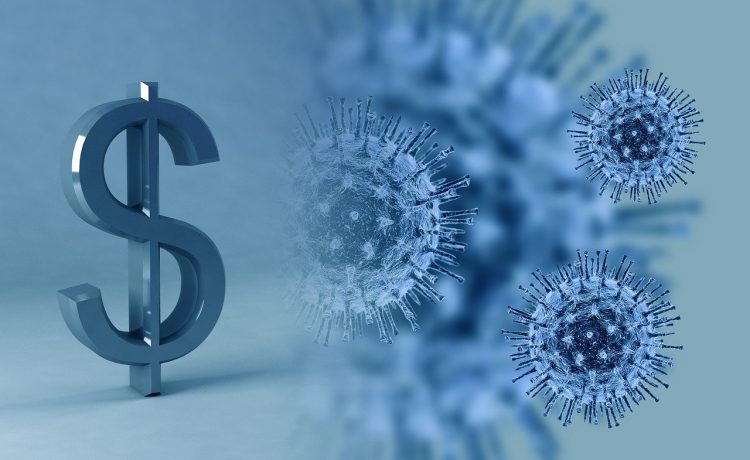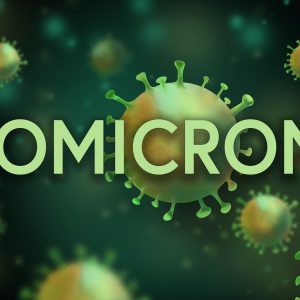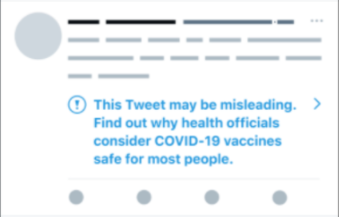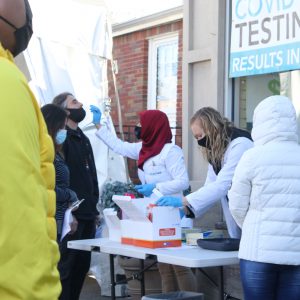Last Updated on November 26, 2021
Since our last update on the costs associated with COVID-19 in May, new variants have swept across the country, booster shots have been recommended for most vaccine recipients, and inoculations have been approved for children as young as 5 years old. Americans are still struggling from unexpected pandemic-related healthcare costs.
Major systemic failures to meaningfully address the coronavirus pandemic throughout 2020 had dire consequences that the nation and the world are still recovering from. The U.S. contains only 4% of the world’s population, but 20% of global cases and deaths from the pandemic. As many as 40% of American deaths in the first year of the pandemic were avoidable. While former President Trump is responsible for his administration’s promotion of misinformation, silencing experts, and interference in fact-based public health guidance, these failures were exacerbated by decades of disinvestment and structural deficiencies in the public health system.
The ongoing pandemic has continued to be politicized with several states’ governors banning enforceable mandates for mitigation efforts such as masks or vaccines in schools, workplaces, or venues. Opposition to COVID vaccine mandates are baseless attempts to reimagine American history including hundreds of years of public health policy, obfuscate responsibilities to our communities, and results in needlessly prolonging the pandemic. Nearly all COVID deaths in the U.S. since May 2021 have been preventable due to the availability of vaccines.
The anniversary of the first confirmed diagnosis of the novel coronavirus in the U.S. was the date of the inauguration of President Joe Biden. The Biden administration has since overseen the distribution of free COVID-19 vaccines to hundreds of millions of Americans. He signed the American Rescue Plan aimed at both providing additional funding for fighting the pandemic and helping the economy through the resulting recession. The legislation included aid to state and local governments, increased unemployment insurance, support for vaccination efforts, education aid, tax credits, housing assistance, and a provision that no one must spend more than 8.5% of their income on insurance premiums — marking one of the most significant changes to the affordability of private insurance since the Affordable Care Act. President Biden has also signed an executive order mandating all federal employees/contractors as well as private businesses that employ 100 or more workers to require employees to be vaccinated or tested regularly.
Racism remains a significant factor of COVID-19. The SARS-CoV-2 coronavirus was first detected in Wuhan, China. Despite the scientific classifications, some people have continually attributed the disease to a name with overtly racist connotations: “Chinese virus.” Attaching the virus to an ethnicity has caused Asian-Americans to become targets of racism and xenophobia, making them subject to hostility and assault. This racial profiling and targeting stems from the false notions that East Asians are to blame for the emergence of COVID-19 and/or are viral carriers by virtue of their ethnicity. Normalizing the association between the coronavirus and those of Asian descent only causes further division at a time when fear and confusion surrounding the facts continues to be harmful to public health.
Americans have faced unexpected costs from coronavirus-related healthcare since early in the pandemic. In February 2020, a family that had traveled back to the U.S. from Wuhan, China faced government-mandated quarantine only to be told they owe $3900 for their involuntary isolation. A patient who hadn’t met the arbitrary prerequisites for being screened for coronavirus received a $2777 bill after a battery of tests to rule out other diagnoses. An uninsured lymphoma patient was charged nearly $35,000 after three emergency room visits over the course of a week, and a diagnosis with COVID-19 three days later. Now nearly two years into the public health crisis, many insurance companies are no longer waiving cost sharing for COVID-19 hospitalizations. Patients covered by these insurers are now at risk for substantial financial burden from COVID-19 hospitalizations or the long-lasting effects of coronavirus infection in the midst of a worldwide healthcare crisis. For the millions of new and existing uninsured and underinsured Americans, there are no guarantees for coverage of costs upwards of $75,000.
At the time of publication, there have been 48,146,904 reported cases and 775,970 deaths in the United States — but these numbers are an underestimate. These numbers also do not include patients who died as a result of fewer available resources from the strained healthcare system.
Dr. Anthony Fauci has said that herd immunity may not be reached until 90% of the United States’ population — up to 300 million Americans — are vaccinated, though there are concerns if herd immunity can ever possibly be achieved in the United States or globally. At the time of publication, 230,669,289 people in the U.S. (70% of the total population) have received at least one dose of the available vaccines including 195,973,992 people (60%) who have been fully vaccinated, though there are still hundreds of American communities where less than 25% of the population has received a vaccine. Globally, 55.3% have received at least one dose of a coronavirus vaccine — including many poor countries that have vaccinated less than 10% of their population due to the monopolization of vaccines among wealthy nations. This vaccination gap is one of the key reasons COVID-19 is still killing more than 6,000 people per day, putting a strain on health systems in countries with already limited resources, fueling hospitalizations, deaths, and economic harm.
Take all measures to prevent the spread of COVID-19 — especially getting vaccinated. For those looking for information on receiving a coronavirus vaccine, eligibility has opened to include nearly all adults and children over 5 years old. Search online for your state’s requirements, area’s locations, and appointment availability. There may be options for children to get vaccinated even if their parents don’t grant permission. If you have symptoms of COVID-19 or a confirmed exposure, it’s important that you contact a healthcare provider right away for medical advice. Tests are available to confirm diagnosis of COVID-19. Stay home from work or school if you are sick.
The circumstances and information on the ongoing COVID-19 pandemic are constantly evolving. We at NeedyMeds will continue to keep our users apprised of new information as it becomes available as well as counter misinformation in the interest of keeping our readers and the public safe.
The NeedyMeds website has a database of over 100 nationwide resources for those who have been impacted by COVID-19. We also have listings for over 18,000 free, low-cost, or sliding scale clinics for those concerned about the costs of healthcare. Search your ZIP code for clinics in your area to find free or low-cost medical attention. Remember to call first if you are seeking information about the availability of COVID-19 testing/vaccination. The free NeedyMeds Drug Discount Card can be used by anyone to help save money on their prescribed medication — even over-the-counter medicine if prescribed by a doctor. The card is available physically via mail, in a printable form, or as a smartphone app for Apple and Android devices. For more help finding information, call our toll-free helpline Monday-Friday 9am-5pm Eastern Time at 1-800-503-6897.





